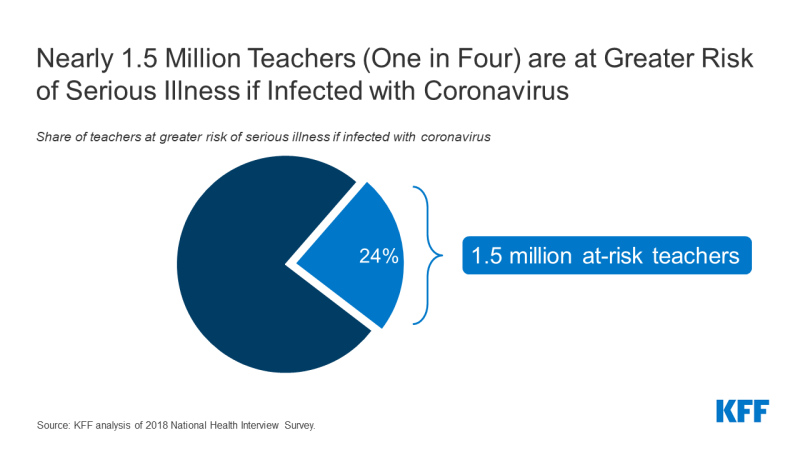
The independent source for health policy research, polling, and news.
About 1.5 Million Teachers are at Higher Risk of Serious Illness From COVID-19
As local, state and federal official debate when and how to reopen schools across the nation, a new KFF analysis estimates nearly 1.5 million teachers have health conditions that put them at higher risk of serious illness if they were to contract COVID-19. This represents nearly one in four (24%) of all teachers around the country, creating challenges for schools trying to provide in-person classroom education safely for students and teachers alike.
While children are at less risk for serious illness from COVID-19 than adults and often have mild or no symptoms when infected, teachers and other adult staff in schools face higher risk.
The analysis finds teachers are similar to the broader workforce in terms of the share who are considered high risk for serious illness from COVID-19 as identified by the Centers for Disease Control and Prevention. Factors that put someone at risk include being at least 65 years old; having diabetes, chronic obstructive pulmonary disease, heart disease, or moderate or severe asthma; being severely obese; and having a compromised immune system, as often occurs during cancer treatment.
Education is primarily a state and local concern, and although they have received mixed guidance from federal officials, decisions over reopening will be made at the state and local level.
One challenge for school systems is the sheer volume of traffic and tight quarters in many school environments, which may make social distancing difficult in the classroom and other settings. How state and local officials balance the desire to reopen schools with the need to assure the safety of students, parents, and school personnel will be have significant health and economic consequences for people and communities.
